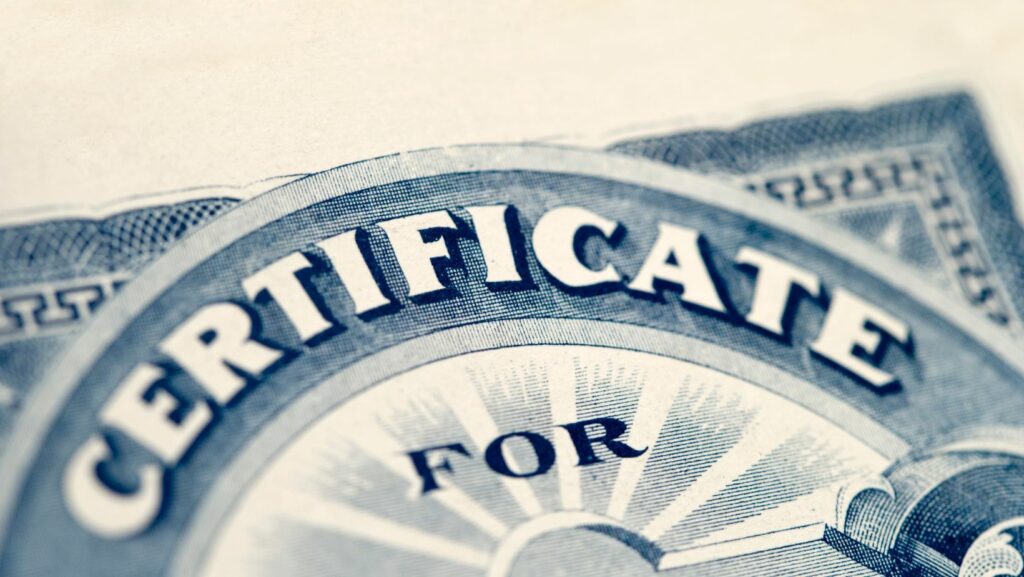So you’re buying your first home?
Congratulations. You’ve got some important decisions to make.
Title insurance is one of those things that no one talks about until it’s too late… and by then it’s too late.
Let’s fix that right now.
Title insurance can be the difference between keeping your home and financial ruin.
Here’s the catch
Title issues can come from fraud, liens and litigation that occurred well before you signed your name on the dotted line and closed on your home.
What you’ll learn:
- What Title Insurance Really Is
- Essential Title Company Responsibilities
- 3 Things You Can Do To Protect Yourself From Title Fraud
- Buying Title Insurance Doesn’t Have To Break The Bank
What Is Title Insurance And Why Do You Need It?
If someone else’s past mistakes create a defect in your title to your property, title insurance will cover you. It’s a one-time payment that ensures you don’t suffer a financial loss due to those problems.
But here’s the thing
Title insurance is different from every other insurance product you know.
With car insurance, for example, you pay a premium and are covered if you get into an accident. With title insurance, you’re covered for mistakes or problems that occurred in the past and could affect you in the future.
In other words, if someone else screws up your title, you’re covered.
Title insurance premiums totaled $4.3 billion in the third quarter of 2024, a 5.3% year-over-year increase.
Core Title Company Responsibilities To Know
Knowing title company responsibilities is important because these businesses play a critical role in every real estate transaction. A qualified real estate title company acts as intermediary between buyers and sellers to ensure the legal transfer of ownership. They do a lot more than that, too.
Title companies are responsible for
- Performing title searches
- Identifying liens, easements, and encumbrances
- Verifying property ownership history
- Facilitating the closing process
- Issuing title insurance policies
- Managing escrow accounts and fund transfers
The title search can go back decades to uncover potential problems like hidden liens, unpaid taxes, boundary disputes, or even forged documents from previous sales. Any of those could threaten your ownership rights.
But did you know…
Title companies also act as neutral third parties during the closing process. They ensure all documents are properly executed, funds are distributed correctly, and legal ownership transfers from the seller to the buyer.
The Growing Threat Of Title Fraud

If there’s one thing that keeps title professionals up at night, it’s this…
Title fraud is on the rise.
According to recent data, 28% of title companies reported at least one attempt at seller impersonation fraud last year.
Let’s break it down.
Fraudsters research property ownership through public records, then forge documents to transfer the property to themselves. They sell it or take out a loan against it, and you’re left to clean up the mess.
The FBI reported over $145 million in real estate fraud-related losses in 2023, with more than 9,500 complaints filed. Those aren’t just numbers. They’re real families who lost their homes to savvy criminals.
Vacant properties or homes without mortgages are most at risk. But don’t think you’re safe just because you own and live in your home. Criminals are getting more creative every year.
Types Of Title Insurance Coverage
As a homebuyer, you have options when it comes to title insurance coverage. There are two main types of title insurance, and knowing the difference could save you thousands of dollars.
Owner’s title insurance protects your ownership rights. If someone challenges your title, this insurance covers legal fees and other costs. It remains in place for as long as you or your heirs own the property.
Lender’s title insurance protects the mortgage lender’s interest in your property. As you pay down your loan, the coverage amount decreases. It only protects the lender, not you.
Let me tell you a little secret though – going without owner’s coverage to save a few hundred dollars at closing could end up costing you your entire home if problems arise.
Red Flags That Signal Title Problems
Smart homebuyers are always on the lookout for warning signs that could signal potential title issues:
- Properties priced significantly below market value
- Sellers who are unusually eager to close or avoid answering questions about the property’s history
- Properties that have changed hands frequently in a short period
- Properties with gaps in ownership records or missing documentation
A quality title company will catch these issues during their title search. But you should be aware of them, too, to avoid potential problems down the road.
Title Insurance Costs and Coverage Limits
Title insurance is a one-time payment that typically costs between 0.5% and 1% of your home’s purchase price. On a $300,000 home, for example, title insurance might cost between $1,500 and $3,000.
The cost depends on several factors, including
- The property’s location and local regulations
- The home’s purchase price and loan amount
- The type and amount of coverage you select
Enhanced policies offer broader protection but cost more upfront. Standard policies cover common title defects. Enhanced coverage often includes additional protections, such as building permit violations and zoning issues.
How to Choose the Right Title Company
Title companies can vary widely in terms of service and protection levels. Here’s what to look for:
- Experience and reputation. How long has the company been in business, and what do other customers say about it?
- The thoroughness of their title search. Do they have a reputation for conducting comprehensive searches that go back decades?
Verify the company’s financial stability. Title companies should have their own insurance and reserves to pay out claims.
Protecting Yourself Beyond Title Insurance
Title insurance does a great job, but you can take additional steps to protect yourself:
- Set up property monitoring alerts with your county recorder’s office. These services alert you when new documents are filed against your property.
- Check your credit reports regularly for signs of identity theft or suspicious activity.
- Keep important property-related documents in a safe place. Consider storing copies in a safe deposit box as well.
The Future of Title Insurance
Technology is changing the title insurance industry.
Blockchain, for example, could eventually streamline and automate the title transfer process, making it more accurate and less susceptible to fraud.
But here’s what won’t change: as real estate values continue to climb, protection against title defects and fraud will become even more important.
Steps to Take Before Closing
Your final weeks before closing are critical for ensuring proper title protection:
- Carefully review your title commitment and ask questions about any issues or exceptions listed.
- Verify that all liens and judgments against the seller will be paid off at closing.
Wrapping It Up
Title insurance may not be the most exciting part of buying a home, but it is one of the most important purchases you’ll make.
Title fraud is on the rise, and property values are continuing to climb, so proper protection has never been more important.
Knowing title company responsibilities and how they can protect your home investment empowers you to work more effectively with these key professionals throughout your home buying process.
From conducting thorough title searches and facilitating smooth closings to protecting you from financial loss due to title defects, quality title companies have your back at every step.
The relatively small cost of comprehensive title insurance coverage provides decades of protection against problems that could otherwise cost you your home. In a world of increasingly brazen fraud attempts, this coverage isn’t optional, it’s essential.



